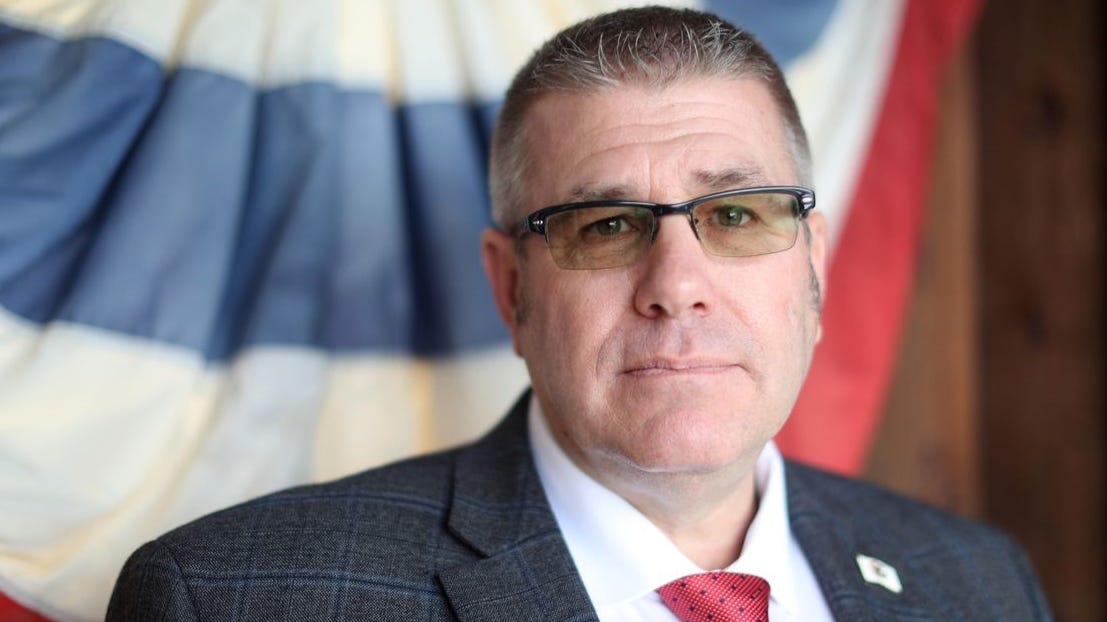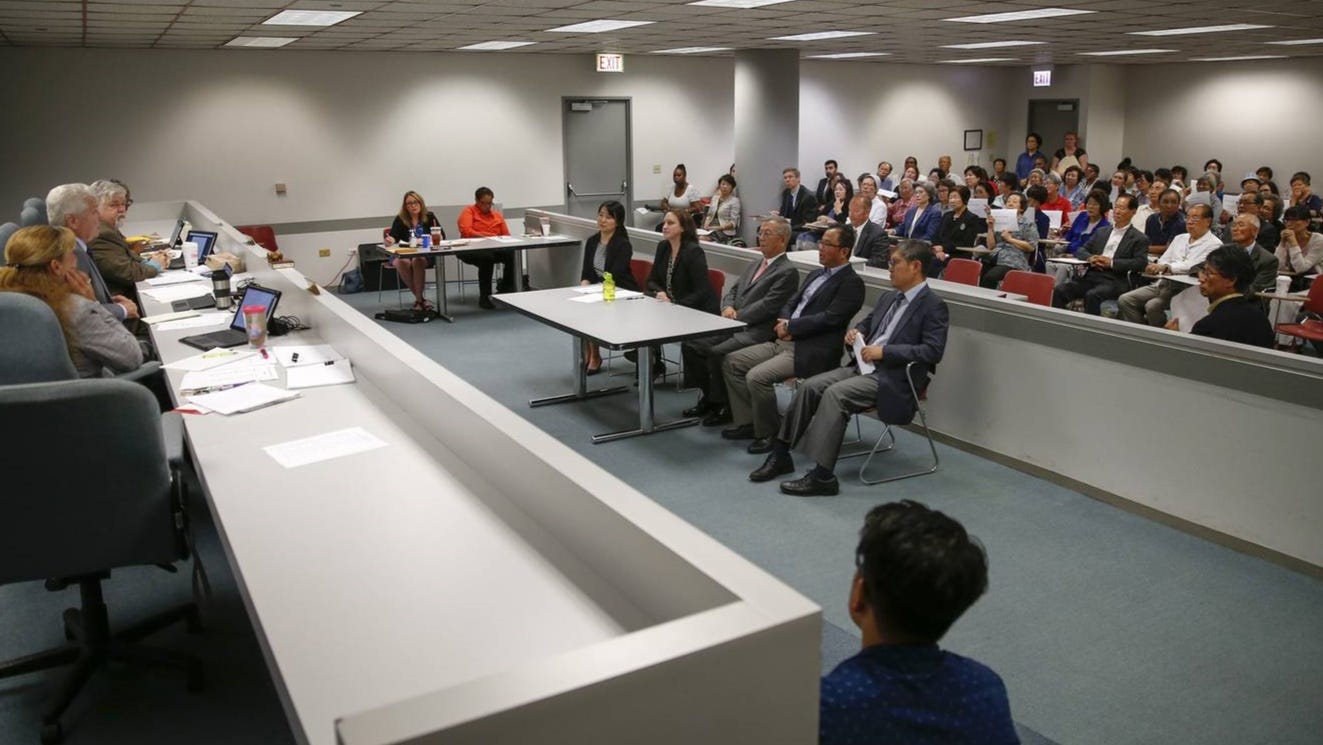THE ILLINOIZE: Thursday Free for All
April 28, 2022
Good morning, Illinois.
If you haven’t heard, Facebook is adding to its server farm near DeKalb, so it may be even faster to scroll Instagram and envy people’s fancy dinners or vacations.
Lots of topics to touch on this morning, so I won’t hold you up. I just wanted to thank you for your support as we continue to build what we’re doing here and look into the new things we can do to make The Illinoize better for you.
Weigh in on what you want to see and things we could do better. Drop me a note at patrick@theillinoize.com.
Let’s get to it.
YOUR THURSDAY FREE FOR ALL
(note: we’re not responsible for paywalls and restrictions from other news outlets)
GOP Gubernatorial Candidate Darren Bailey Fought Against Mask Mandates. His Family Farm Required Them For Some Workers (WTTW)
One of the leading candidates, state Sen. Darren Bailey, has made a name for himself fighting Pritzker’s executive orders requiring masks in places like theaters, stores and schools.
His campaign said Bailey’s stance on masking has been “consistent” despite a policy at his family business that could be viewed as contradictory to his public anti-masking message. According to federal documents, face coverings are required for certain workers at the Bailey Family Farm, of which he is registered as a trustee.
Specifically, per documents on file with the federal government, face coverings are required for certain workers at the Bailey Family Farm, where according to Bailey’s campaign website, he grew up.
The Bailey farm was under no apparent legal obligation to take such strict measures. Other Illinois farms, including another in Xenia, do not list COVID safety requirements.
‘These are not casual decisions.’ Changing dynamics about crime and politics have wide-ranging influence on state board. (Chicago Tribune)
When a group of Democratic state senators joined Republicans in rejecting two of Gov. J.B. Pritzker’s nominees to the Illinois Prisoner Review Board last month, it became clear that crime has become such a big issue in this year’s elections it is even driving some divisions within the governor’s own political party.
How a little-known state board became a flashpoint for controversy also demonstrates how much has changed about politics and crime in just a few short years. When Republican Gov. Bruce Rauner took office in 2015 he pledged to work to reduce the state’s prison population by 25% over 10 years, a move at the time applauded by Chicago Democrats.
Fast forward through Rauner’s administration and most of Pritzker’s and the situation is radically different. Gun violence in Chicago has spiked along with other major U.S. cities since the start of the COVID-19 pandemic prompting Republicans to call for a more law-and-order approach while opponents point to systemic problems in the criminal justice system as a reason for it to be reformed.
“It is clear that these senators have a general distaste for the work of the PRB if the Prisoner Review Board does not follow their dictates and beliefs,” [rejected PRB member Eleanor Wilson wrote in a letter to Pritzker obtained by the Tribune, noting some Republican senators tried to “vilify my tenure.”
“(Decisions) are made based on the inmate’s record of behavior in prison, conditions to be followed upon release, housing and job possibility,” added Wilson, who is also the godmother of former President Barack Obama’s children. “These along with the redemptive and rehabilitative nature of the inmates serve as the principle guide for parole. Given these criteria, it is impossible for any one PRB member to make a sole decision about parole.”
Gov. JB Pritzker signs bills addressing statewide teacher shortage (State Journal-Register)
Gov. JB Pritzker on Wednesday signed a package of four bills, each aimed at addressing a lack of teachers around the state.
The signing ceremony, held at the Springfield High School library, featured Pritzker, Springfield School District 186 Superintendent Jennifer Gill, local lawmakers and students from the district.
Eleanor Stuckey is a Springfield High student who comes from a family of teachers. She hopes to become a teacher in her professional life and said she appreciates the efforts from the General Assembly to make it easier to enter the field.
"Being a teacher is no easy task, which is helped become even clearer to me as I see all the things my teachers do day in and day out," said Stuckey.
The four bills mostly deal with making it easier to hire and keep substitute teachers in classrooms.
You know its an election year when substitute teaching licenses gets a gubernatorial signing ceremony.
Related: Opinion: Bill to strengthen rights of foster kids important, but just one step (Daily Herald)
Despite gun violence crisis, the Pritzker administration has been sitting on $50 million in federal anti-violence funds (WBEZ)
Last month, Illinois Gov. JB Pritzker testified before congress about his administration’s use of more than $8 billion in federal COVID stimulus funds sent to the state as part of the American Rescue Plan Act.
He told the committee his use of the money was based on “a central tenet” that “the role of government in a crisis is to end the crisis as quickly as possible, and to alleviate the pain it inflicts on the people that we serve.”
Pritzker’s administration set aside more than $50 million from the COVID stimulus funds for violence prevention in the budget that passed last year. The funding, to be administered through the Illinois Criminal Justice Information Authority, offered a unique opportunity to flood resources into neighborhoods impacted by violence. But with the fiscal year almost over, the state has spent only $56,764, one-tenth of 1% of the money, as Illinois experiences its worst gun violence in decades.
“Normally the argument would be, we just don’t have the money. Now we have the money, and we’re sitting on the money,” said Illinois State Rep. LaShawn Ford (D-Chicago), co-chair of the Public Safety and Violence Prevention Task Force. “Right now, the city of Chicago is on fire with violence, and we have to respond to that … There shouldn’t be a delay … people are dying.”
State officials said they are developing plans to ensure the money is spent effectively, but the clock is ticking.
The federal ARPA dollars have to be allocated by 2024 and spent by 2026, or the state will be forced to send the money back.
Related: Jackson, Pfleger sound alarm on curbing gun violence in the city: ‘All of us have to be part of this’ (Chicago Sun-Times)
State tries again to lock in summer power prices for ComEd customers (Crain’s Chicago Business)
State officials will attempt again to lock in summer power prices for households and small businesses that get their electricity from Commonwealth Edison.
The eleventh-hour scrambling comes after an auction that failed to produce deals for any of the power the IPA was seeking for July and August, as well as much of June. That would leave ComEd dependent on the spot market for about half its summer power demand, making its customers vulnerable to sudden price spikes.
Illinois Democrats poised to bid to hold early presidential vote (Chicago Sun-Times)
Illinois Democratic officials are poised to make the case to the Democratic National Committee that Illinois should be among the states with the first votes in the presidential primaries, the Chicago Sun-Times has learned.
Illinois, if it’s an early primary state starting in 2024, could become a power player in determining a Democratic presidential nominee.
The DNC’s Rules and Bylaws Committee passed a resolution at its April meeting calling for a 2024 nominating calendar that reflects diversity; helps Democrats win the White House and “contributes to a fair and sound electoral process.”
For a practical matter, Iowa, the state with the traditional kickoff vote for Republicans and Democrats, will most likely lose its special status with Democrats. That’s because Iowa votes Republican in presidential elections; is not diverse; and has a much-criticized caucus voting system.
In 2020, Iowa voted on Feb. 3; New Hampshire on Feb. 11, followed by Nevada on Feb. 22 and South Carolina on Feb. 29. Most years, the Illinois primary is in March, with the Democratic primary field usually reduced by then to two or three frontrunners.
Remember the February 5th primary in 2008? Ugh. No thanks.
SOME TOP LINKS FROM THE WEEK SO FAR
JOIN US














